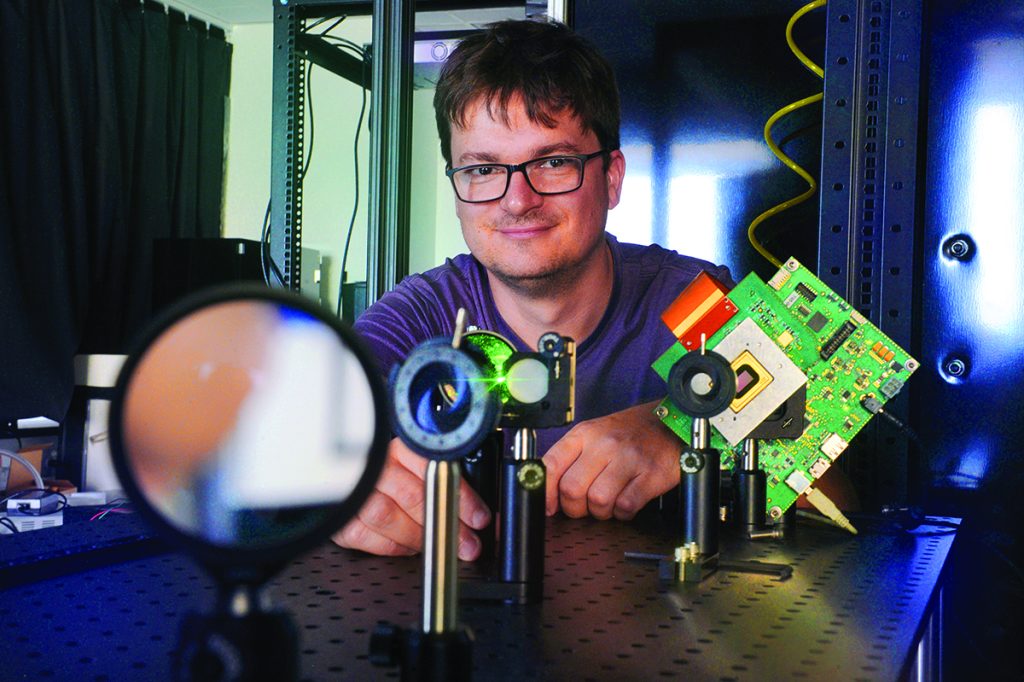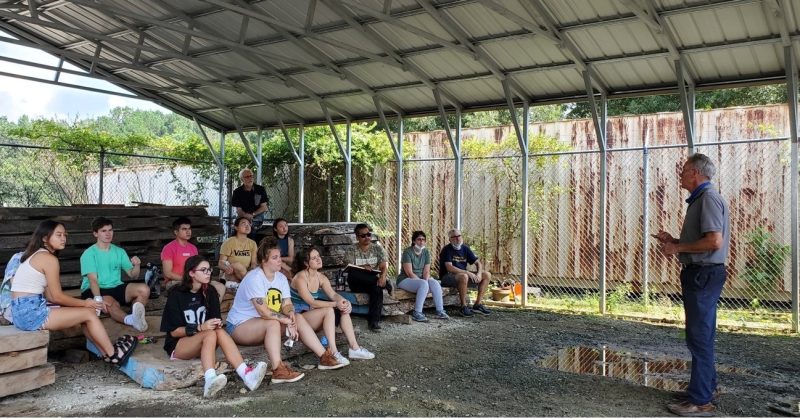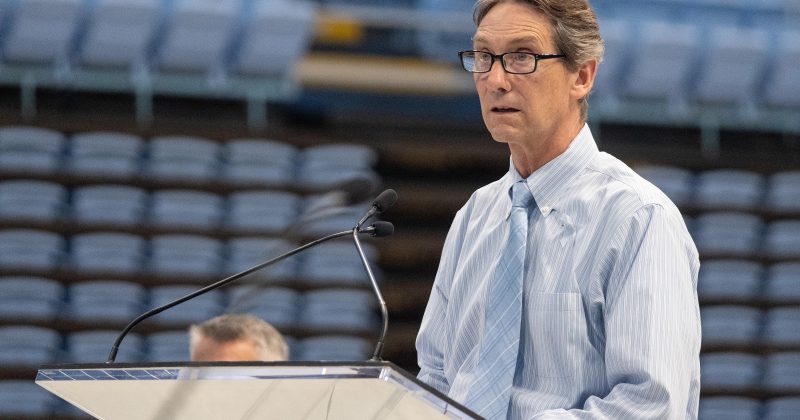
Nicolas Pégard’s lab develops automated microscopes that track and modulate the activity of neurons in 3D to reverse-engineer brain functions. (photo by Donn Young)
Nicolas Pégard’s lab helps neuroscientists tackle research challenges with custom-designed optical technology.
Optical engineering. Neuroscience. Computer programming.
Identify the point where these research areas converge, and you’ll find the work of Nicolas Pégard, an assistant professor of applied physical sciences. With joint appointments in the department of biomedical engineering and the UNC Neuroscience Center, Pégard specializes in designing optical instruments to reverse-engineer how the brain works.
How did he arrive at this distinct intersection of scientific fields? For Pégard, the answer is simple: Follow your curiosity.
Growing up in France, Pégard fell in love with experimental physics at the Palais de la Découverte, or “Discovery Palace,” a science museum in Paris. His father, a computer scientist, and a few attentive teachers fortified his interest.
“I had several teachers who noticed I was curious and absorbed information fast,” he said. “They invested a little extra time and energy in my education — like giving me books to read.”
Books on semiconductors led him to study materials science during his undergraduate career at École Polytechnique in France, before heading to Princeton to begin his Ph.D. Pégard applied to the department of electrical engineering, but the microelectronics lab he was initially hoping to join never responded to his inquiries. Meanwhile, Pégard learned about another lab that was doing research in optics — and that group responded to him immediately.
“That’s where I discovered computational imaging — the art of developing hardware and software together to capture better images,” he said.
After finishing his Ph.D., Pégard landed a postdoctoral position at the University of California, Berkeley to design custom microscopes for a neuroscience lab.
“Neuroscientists are really creative experimentalists who like to tinker,” Pégard said. “They saw the benefits of being connected to an engineer.”
When Pégard joined the UNC faculty in 2019, he received a Career Award from the Burroughs Welcome Fund to build an interdisciplinary lab at the intersection of neuroscience, engineering and computer science. Pégard’s research team develops automated microscopes that track and modulate the activity of neurons in 3D to reverse-engineer brain functions.
“We observed that many of our neuroscientist colleagues were unable to pursue their dream experiments due to lack of adequate technology, so we create custom optical instruments that are tailored to their exact experimental needs,” Pégard said.
To construct their custom microscopes, Pégard and his team sometimes use parts scavenged from video projectors and cellphones. They also make some parts from scratch at one of UNC’s BeAM makerspaces.
Pégard recently received two prestigious awards — the Beckman Young Investigator Award and the Sloan Fellowship — to expand his work and to create new partnerships.
His latest collaboration, with Jose Rodríguez-Romaguera and Rebecca Grzadzinski in the department of psychiatry in the UNC School of Medicine, involves developing a non-invasive optical device that could help in the diagnosis and management of neuropsychiatric disorders. The device is a pair of glasses that uses infrared light and sensors to track eye movement, pupil size, breathing rate and heart rate.
“In many psychiatric disorders, the arousal response is dysfunctional,” Pégard said. “For example, a patient with PTSD may react very strongly to a neutral stimulus like the sound of a car passing by.”
Pégard compares the device to a Fitbit for mental health: “It monitors the patient’s biometric markers of arousal and alerts them whenever arousal responses are observed outside of their expected range. With it, we can implement new strategies to manage the underlying disorder and intervene as soon as signs and symptoms are detected. Our goal is to provide patients with a new effective option for mental care, between counseling and medication.”
Pégard enjoys the interdisciplinary nature of his work.
“I thrive working with neuroscientists who have technological needs,” he said. “My colleagues simply don’t have the bandwidth to invent new technology, but that’s what I have spent my career developing. We have a very symbiotic relationship.”
By M.L. Parker ’10
Published in the Fall 2023 issue | Faculty Up Close, Tar Heels Up Close
Read More

Add to your reading list: More books by College faculty and alumni
In addition to our Chapter & Verse feature, enjoy more…

Students turn downed trees into art
Jim Hirschfield and his students collaborate with the Carolina Tree…


